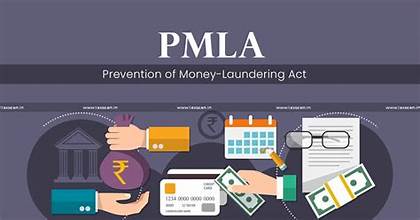Highlighting the low rate of conviction in money laundering cases, the Supreme Court on Wednesday suggested the Enforcement Directorate (ED) to focus on the quality of evidence and prosecution in cases registered under the Prevention of Money Laundering Act (PMLA).
The Bench of Justice Surya Kant, Justice Dipankar Datta and Justice Ujjal Bhuyan made the observation while hearing a bail petition of Chhattisgarh-based businessman Sunil Kumar Agarwal, arrested under PMLA, in connection with an alleged coal transportation scam.
Referring to the information provided by Union Minister of State for Home Nityanand Rai on August 6 in the Parliament, the Bench noted that since the amendment of the Act in 2014, 5000 odd cases have been registered, while conviction have been obtained only in 40 cases.
The Apex Court directed the national agency to pay attention on the quality of prosecution and quality of evidence. It said all the matters in which the ED was satisfied of having a prima facie case, the agency needed to establish the same in the court.
The Bench said in the present case, ED was merely ‘harping’ upon oral evidence, such as some statements given by the persons and some affidavits given by 2-3 persons. The person may not stand by his/her statement in the witness box. There was no surety whether the person may or may not be able to face cross-examination. the agency should instead go by some scientific investigation, added the Court.
Appearing for ED, ASG SV Raju asserted that a statement became admissible and was treated as a piece of evidence under Section 50 PMLA, unlike Section 161 CrPC, which was hit by the bar of Section 162.
The ASG then stressed on Section 45 PMLA, which imposed twin conditions for bail.
The Bench responded that Section 19 PMLA required the arresting officer to form an opinion that the accused was guilty of the offence. It was the requirement of law. Before Section 45, Section 19 (grounds of arrest) has to be satisfied.
If ED could not sustain an order under Section 19, the national agency could not perhaps say that the burden was on the accused to show that he was not guilty. If the national agency was not sure that the accused was guilty, how could ED ask the accused to prove before the Court that he/she was not guilty.
Appearing for the businessman, Senior Advocate Mukul Rohatgi contended that in Arvind Kejriwal’s case, the Apex Court held that reasons to believe, besides grounds of arrest, have to be supplied to the accused.
He added that as per the judgement, there also must be a necessity to arrest, based on evidence with the Investigating Officer.
Agarwal was earlier granted interim bail by the Court on May 17, after noting that there was no scheduled offence made out against him as per the charge sheet filed in the predicate case. The Bench today confirmed its May 17 order and disposed of the SLP.
Agarwal was represented by Senior Advocates Rohtagi and Vikas Pahwa, along with Advocates Tushar Giri and Sahil Bhalaik.


